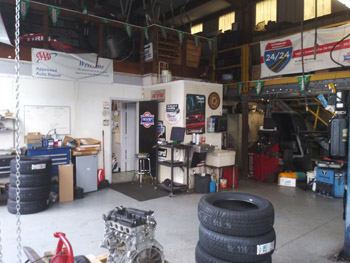All Categories
Featured
A healthy battery is necessary for your car's general efficiency. It powers everything from the ignition system to the lights and accessories. While it's easy to take your auto battery for given, understanding how to examine its wellness can help protect against inconvenient breakdowns. Normal checks can expand the life of your battery and guarantee your automobile runs efficiently. Below's a detailed overview to assist you assess your car's battery health and wellness.
Why Battery Health And Wellness Issues. Your automobile's battery plays a vital role in beginning the engine and powering digital systems like lights, air conditioning, and the radio. A failing battery can cause sluggish beginnings, malfunctioning electronics, or perhaps leave you stranded. Batteries normally use out in time, however knowing when they get on the brink of failing can conserve you from these situations.
Indicators That Your Battery May Be Weak. Prior to you dive into checking the battery on your own, it serves to be conscious of some common caution indicators that suggest your battery could need attention:

Slow Engine Crank: If your engine takes longer to begin, it may be an indication that the battery is shedding its power. Dim or Flickering Lighting: When the auto is running, inspect the headlights. If they appear dim or flicker while you're idling, your battery can be battling. Inspect Engine Light or Battery Caution Light: Several contemporary lorries will certainly present a battery caution light on the control panel if there's an issue with the battery or charging system. Deterioration: Visible rust around the battery terminals is a clear sign of a problem. This accumulation can interfere with the electric link, resulting in poor efficiency. Regular Dive Starts: If you consistently need to jump-start your auto, your battery is most likely near the end of its life and should be changed. Exactly how to Check Your Cars and truck's Battery Health. Check the Battery for Physical Damage:. Beginning by looking over the battery for splits, leaks, or protruding. Physical damages to the battery case can show that the battery is at danger of failure. If you see any leakages or corrosion, take caution, as this can be hazardous.
Inspect the Voltage with a Multimeter:. A simple and accurate means to examine your battery health is by measuring its voltage. Below's exactly how you can do it:

Set your multimeter to DC voltage and choose a 20-volt array. With the car off, position the red (positive) probe on the positive terminal and the black (adverse) probe on the negative terminal of the battery. A healthy battery needs to read around 12.6 volts or even more. If the voltage is listed below 12.4 volts, the battery may be weak and need charging or replacement. If it's under 12 volts, it's time to think of obtaining a brand-new battery. Carry Out a Lots Test:. To actually analyze exactly how well your battery does under anxiety, a load test is perfect. This examination is best done by a specialist auto mechanic, but you can carry out a standard lots examination if you have a battery load tester. Right here's a simple method to do it:
Shut off the cars and truck, and measure the voltage using a multimeter as described above. Beginning the automobile and determine the voltage again. If the voltage goes down substantially below 12.4 volts when the engine is running, the battery is struggling to keep charge and might need replacement. Inspect the Generator Result:. A faulty alternator can additionally cause battery issues, as it is in charge of recharging the battery while the auto is running. You can check your alternator's outcome by determining the voltage while the vehicle is on. It must check out between 13.7 to 14.7 volts. If the analysis is below this variety, the alternator may not be correctly billing the battery, which can cause battery failure with time.
What to Do If Your Battery Is Weak. If your examinations reveal that your battery's voltage is reduced or it's not holding a fee, there are a couple of things you can do:
Charge the Battery: If the voltage is slightly low (12-12.4 volts), try charging the battery with a vehicle battery charger. If it holds a cost, it could be able to last a little much longer. Replace the Battery: If the battery's voltage is under 12 volts or it has a hard time to hold a fee, it's likely time for a replacement. Many automobile batteries last 3-5 years, so if your battery is nearing that age, it's worth changing it before it passes away entirely. When to Replace Your Cars and truck's Battery. While batteries can last for numerous years, it is essential to change them prior to they fall short entirely. Below are some aspects that might suggest it's time for a replacement:
Age: If your battery is more than 3-5 years old, it's an excellent idea to replace it, even if it hasn't shown indications of failure. Constant Issues Beginning the Auto: If your car has trouble starting even after being jump-started, it's time to obtain a brand-new battery. Deterioration or Leaks: If rust or leaking shows up on the battery, it may be an indicator that it's getting to completion of its life. Verdict: Regular Battery Maintenance for Durability. Checking your cars and truck's battery wellness is a basic but important part of automobile maintenance. On a regular basis checking your battery will certainly ensure that your automobile runs smoothly and begins dependably every time, and it will certainly assist you prevent unexpected malfunctions.
Latest Posts
Discover Why Chicago Drivers Prefer Montclare Auto Repair for Dependable Service and Significant Savings
Find the Greatest Auto Repair Deals in Montclare, Chicago
Picking the Right Roofing Shade: Influence On Power Performance
More
Latest Posts
Discover Why Chicago Drivers Prefer Montclare Auto Repair for Dependable Service and Significant Savings
Find the Greatest Auto Repair Deals in Montclare, Chicago
Picking the Right Roofing Shade: Influence On Power Performance